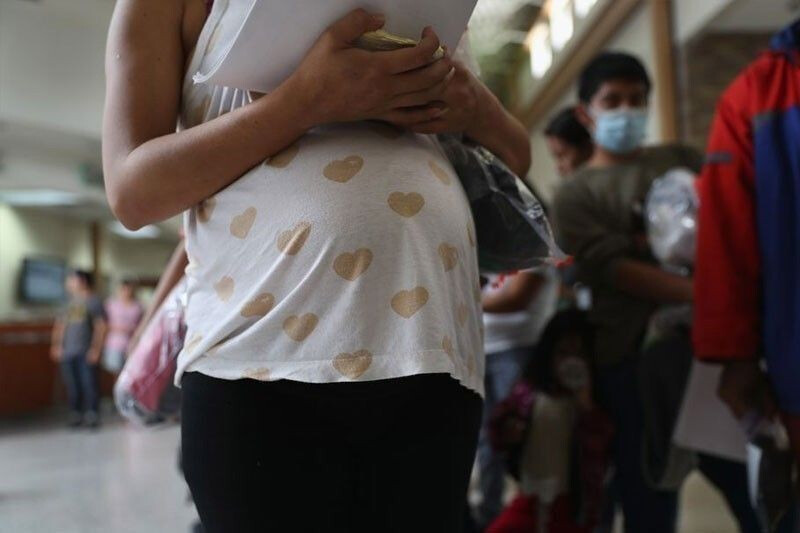
As World Population Day approaches on July 11, the Philippine Commission on Population and Development (CPD) has highlighted an alarming increase in teenage pregnancy rates among Filipino youth. The CPD is calling on communities to protect adolescents and empower them through accessible reproductive health education.
Marilyn Mirasol-Quiray, Chief of the CPD's Knowledge Management and Communications Division, emphasized in an interview with PTV's "Bagong Pilipinas Ngayon" on Wednesday, "We want our adolescents to know their rights, to exercise their reproductive rights. They deserve to make choices about their bodies and their future without fear."
The United Nations has set the theme for World Population Day 2025 as "Empowering Young People to Create the Families They Desire in a Just and Hopeful World," focusing on the largest generation of young people in history. Quiray stated that the CPD aims to focus on Filipino youth, ensuring they live in a "just and equitable world" where they are informed and empowered to protect their sexual and reproductive health rights.
"What we truly want now is adolescent health and development. Our young people must choose the right path and be free to choose. The key message is 'I choose, I choose the right path, dream big,'" Quiray added.
Data from the 2023 Civil Registration and Vital Statistics reveals a shocking increase in pregnancies among children. Nearly 4,000 births occurred among children aged 10 to 14, emerging as a serious social issue. Quiray further expressed shock, mentioning that the youngest recorded mother in the Philippines was a 9-year-old girl from Luzon. "This means she was 8 years old when she gave birth. It's truly saddening," she said.
To curb these early pregnancies and promote safe reproductive choices, the CPD is strengthening its "I Choose" campaign through its "Malaya Akong Maging" Facebook page and the malayaako.ph website. She explained that these sites serve as safe spaces where adolescents can freely ask questions about sexual and reproductive health that they might find difficult to ask at home or school. Quiray stressed that the CPD wants to inform Filipino youth that they have choices and can choose a brighter future.
Interestingly, the average fertility rate per woman in the Philippines has decreased to 1.9, and more Filipinos are opting for cohabitation rather than formal marriage. The number of formal marriages decreased from over 444,000 in 2022 to over 414,000 in 2023. CPD data also showed that while over 600,000 children are born to formally married couples, over 800,000 children are born in cohabiting relationships. This suggests a significant shift in family formation patterns in Philippine society.
Quiray emphasized that reliable and comprehensive data are essential for shaping responsive policies that place people at the center of development. "Population and development must be at the core of the nation because the quality of the people will determine the quality of the nation. Everything from employment to protection is related to people, so people are truly the heart of development, and thus all policies should revolve around the population," Quiray stressed.
The Need for a Comprehensive Approach
The issue of teenage pregnancy in the Philippines is a complex problem that requires a collective effort from society to address and resolve. A multi-faceted approach is necessary to tackle it.
Strengthen Comprehensive Sexuality Education: Schools and communities must provide age-appropriate, practical, and comprehensive sexuality education to help adolescents acquire accurate knowledge about their bodies and sexuality, enabling them to make responsible choices. This should go beyond simply teaching about contraception and include broader topics related to reproductive health, such as the importance of relationships, consent, and emotional management.
Expand Youth-Friendly Healthcare Services: There is a need to expand youth-friendly clinics where adolescents can comfortably visit for consultations and receive necessary medical services. These clinics should ensure anonymity and provide high-quality reproductive health services.
Increase Socioeconomic Support: Socioeconomic factors such as poverty and lack of educational opportunities are closely linked to teenage pregnancy. Strengthening socioeconomic support, including scholarships, vocational training, and employment assistance, is crucial to enable adolescents to continue their education and achieve economic independence.
Role of Family and Community: Parents and communities should establish open channels of communication with adolescents, actively listen to their difficulties, and provide support. It is particularly important to improve cultural norms that stigmatize discussions about sex and reproductive health within families, helping adolescents access the information they need.
Strengthen Legal and Institutional Protections: Legal and institutional mechanisms must be reinforced to prevent cases of early pregnancy due to sexual violence and to ensure that pregnant adolescents receive appropriate support and protection.
Solving the problem of teenage pregnancy in the Philippines and ensuring that all young people can exercise their right to determine their own lives and futures urgently requires the attention and effort of society as a whole.
[Copyright (c) Global Economic Times. All Rights Reserved.]






























